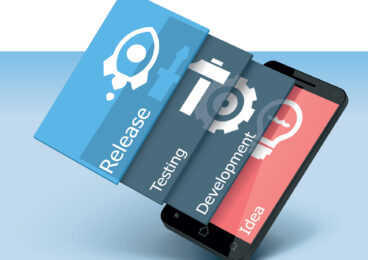
Talking Agile, but Living “Agile-Fall”

Agile development is seemingly all around us. According to Forrester, “Since 2013, twice as many companies are using agile techniques to create more value for their business, faster…A third of firms have been practicing agile for more than five years, and 54% have successfully scaled their agile practices to more than half their teams.” We’re living and working through an exciting, game-changing era in software development. But does the reality match the self-confessed adherence to agile?
Naturally, the maturity and penetration of agile development varies from firm to firm. However, it is increasingly clear that there is a chasm between true agile and agile-like or hybrid development. “Agilefall” is the tongue-in-cheek name given to a development process that is neither waterfall nor agile, but somewhere in between.
Are you living agile-fall?
Answer the questions below truthfully, as a reality check on whether you really are practicing agile.
Do your sprints sometimes feel more like marathons?
Are your initial sprints more about planning, with testing left until later?
Are your product release deadlines months away?
Are you still predominantly performing manual testing rather than automated testing?
If you answered yes to one or more questions, then, I’m sorry to tell you that you’re living agile-fall. The key here is to be aware of it. If you’re kidding yourself or your team that you’re agile when you know deep down you’re not, you have a problem. Because that means you’re not able, or willing, to evolve.
A stepping stone to change?
Now if you are aware that you’re in agile-fall, that’s fine. The first step to addressing it, like so many things in life, is to first admit that the problem is there. Agile-fall can be a transition, a stepping stone to full agile. So long as you keep moving.
In more traditional software development groups which have “grown up” with waterfall, a staged approach to agile can be sensible. In our work, we’ve seen very clearly that larger and more established businesses have the most difficulty with agile transformations. They’re part of a business environment that values high predictability, advance planning, deadlines and scopes of work. Moving away from those things which all sound positive in themselves can be a struggle to say the least — it’s a cultural shift from order to chaos, as some may believe it to be. In our experience, the technology barriers to true agile are never as difficult to overcome as cultural changes.
Effecting a cultural change
Cultural change doesn’t happen overnight or spontaneously. In fact, application development can permeate so many aspects of a business that a big-bang switch to agile could be impractical. Agile often works best when it starts with one successfully-run project. This trailblazing project in turn persuades people to take on another, and another until the agile tipping-point is reached.
Transitioning from agile-fall to agile requires all the development team to keep pushing the boundaries. Like with certain industries, a degree of self-regulation can avoid the need for top-down diktats. There can’t be many parts of the business world now where the term “agile” is not banded around, as the phrase spread out from software development. It would be an irony indeed for senior executives to impose “agility” on the development team after they so recently “borrowed” the term themselves from the development world.
If you think you’re in agile-fall, or even in agile free-fall, help is at hand. Contact us to find out more about how we can speed up enterprise-wide agile adoption and make the evolution as painless as possible.







